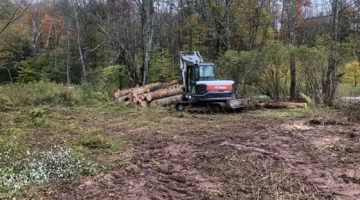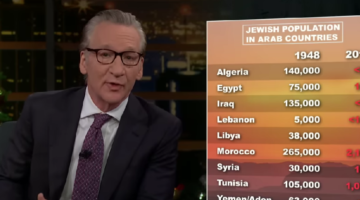The Passover story, and the Haggadah, in particular, is replete with complex explanations of the story. In fact, one can hardly be considered a prolific scholar without having an Artscroll Haggadah in your name. As a result, I find that every year, many of us feel an increasing need to make our own Divrei Torah more convoluted (or pilpulistic) than the year before- such is our nature.
But for this D’var Torah, I want to keep it simple- going straight to one of the first divrei Torah I heard on the Haggadah when I entered Day School back in 6th grade. For me, and for our years of seder guests, ranging in ages and levels of knowledge (my parents reach out to all people, such that our seder participants range from the Wise Son to those that don’t know how to ask), I like to give this vort; its depth is in its simplicity.
Toward the beginning of Magid, we learn of 5 Rabbis (Rabbi Eliezer, Rabbi Yehoshua, Rabbi Elazar Ben Azaryah, Rabbi Akiva, and Rabbi Tarfon) who sat up all night in B’nei Brak discussing the seder, until their students came to inform them that it was time to say the morning “Kriat Shema.” The length of their exposition is extraordinary unto itself, but even more amazing when you see who these Rabbis are. Their names appear throughout the Talmud, so it is no surprise that they can engage in lengthy discourse on matters of Judaism. But this particular conversation was important, because as they went over the Haggadah, telling of how Hashem had saved their forefathers, they could have technically been called liars. See, none of them were descended from slaves. All of their ancestors had either been converts, who obviously had not been in Egypt at the time, or from the tribe of Levi (including Kohanim), which Egypt had exempted from slavery, as the Priestly class. So while we are commanded to see ourselves as if we, today, were being brought out of Egypt like our forefathers, these Sages would have thought back to their ancestors’ lives of relative luxury! How could they possibly be so involved in a story that didn’t directly concern them or their family!
From here, we learn a powerful lesson about Passover, and ourselves. The Jewish people is one entity- though we have different names, and occupy (vastly) different branches of the family tree, we are still inter-connected, and our fates inextricably tied to one another. If one Jew suffers, than it is incumbent upon all of us to alleviate that suffering. (Of course, though possibly on a different level, the same applies to all mankind- we share our world and origins, and are required to help anyone we can). Something that happens to our proverbial neighbor most definitely concerns us. This unity of experience, and consequent unity of purpose, should drive us every day, just as it drove those Rabbis, who rather than saying, “At least my family wasn’t enslaved,” proclaimed, “My people was enslaved- my brethren were oppressed- let us celebrate their redemption and ours, and let us pray for G-d to redeem us again!”
And indeed that is the lesson of Passover- the Jewish people seem to be the most adept in the world at drawing lines between one Jew and his fellow. We incorrectly allow our external differences to indicate that we are different inside, as well- and thus we are enslaved by our own conflicts. Let us learn the lessons of the seder- free ourselves from our self-imposed slavery by recognizing that unity in our people can bring the ultimate redemption.
Chag Sameach








